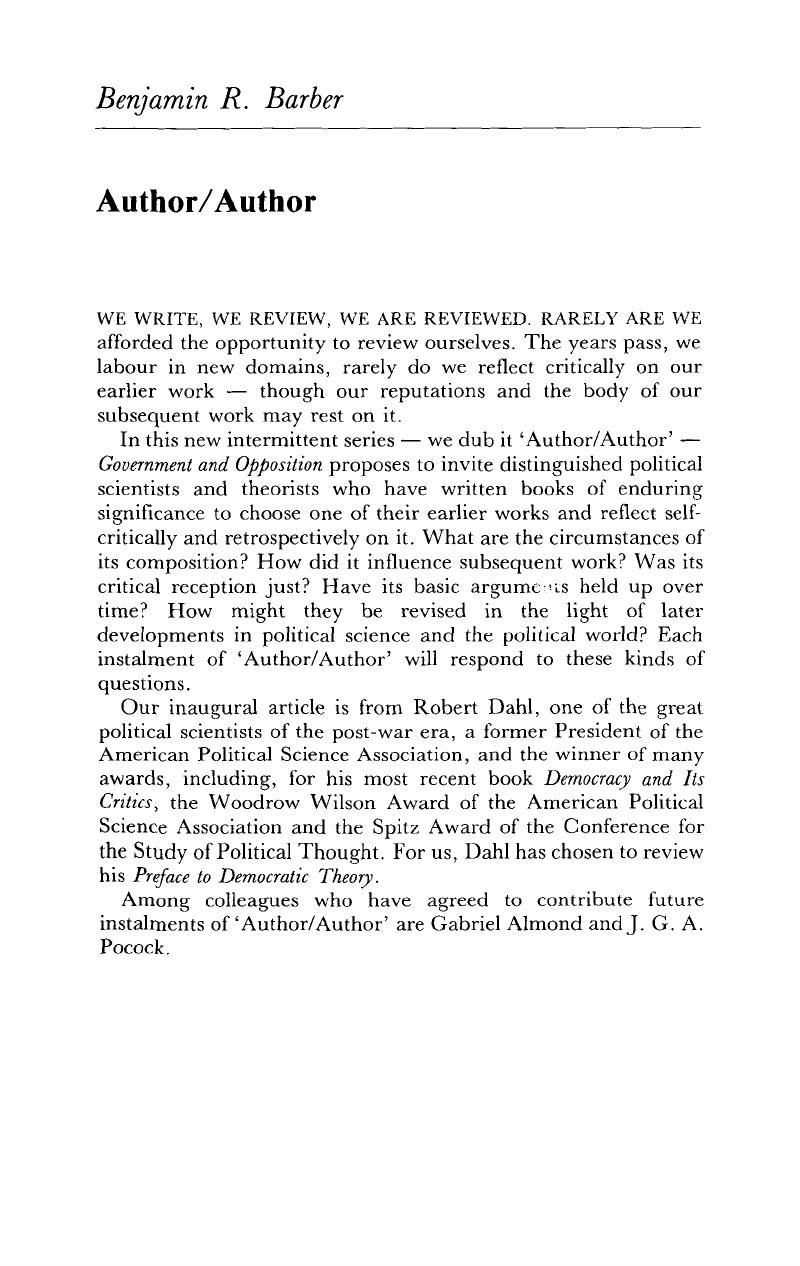Article contents
Reflections on A Preface to Democratic Theory
Published online by Cambridge University Press: 28 March 2014
Abstract

- Type
- Articles
- Information
- Copyright
- Copyright © Government and Opposition Ltd 1991
References
1 The angle of vision from which I approached Madison may also account for my misreading The Federalist, No. 49. I attributed to him three reasons why he believed that ‘electoral processes’ would be inadequate to prevent ‘tyranny’ in his sense. (A Preface, p. 14). However, he was referring not to electoral processes but to constitutional conventions.
2 The Records of the Federal Convention of 1787, Vol. III, Farrand, Max (ed.), New Haven, Yale University Press, 1966 [1911, 1937], p. 450.Google Scholar
3 The note failed to specify them. It refers only to observations ‘in the speech of J. M. See debates in the Convention of 1787 on the…day of…’, ibid.
4 ibid., pp. 454–55.
5 That classic work was even harder going for me than it would have been later on because I had to read it in the original edition (New York, John Wiley & Sons, 1951), where the presentation was somewhat more complex than in his second edition (New Haven, Yale University Press, 1963). Unfortunately, too, I could not consult the beautifully clear expositions in such later works as MacKay, Alfred F., Arrow’s Theorem: The Paradox of Social Choice, New Haven, Yale University Press, 1980.Google Scholar
6 Arrow’s paradox, as it came to be called, is reduced to two sentences in the text and two footnotes, one quite lengthy. (pp. 42–3).
7 A notable exception was provided in the work of a colleague, Lasswell, Harold D., and a philosopher, Abraham Kaplan, in Power and Society, New Haven, Yale University Press, 1950.Google Scholar
8 Procedural Democracy’ in Laslet, Peter and Fishkin, James (eds), Philosophy, Politics & Society, New Haven, Yale University Press, 1979, pp. 97–133.Google Scholar
9 In Polyarchy: Participation and Opposition (1971), ‘Polyarchy, Pluralism, and Scale’ (1984), Democracy and Its Critics (1989).
10 Particularly differences in access to information, in Controlling Nuclear Weapons: Democracy versus Guardianship (1985) and in property and work, in A Preface to Economic Democracy (1985).
11 As I had stressed earlier in Congress and Foreign Poliy (1950) and to which I returned in ‘The Pseudodemocratization of the American Presidency’, in The Tanner Lectures on Human Values X, 1989, and a slightly shorter version ‘Myth of the Presidential Mandate’, Political Science Quarterly, Autumn 1990.
- 4
- Cited by


